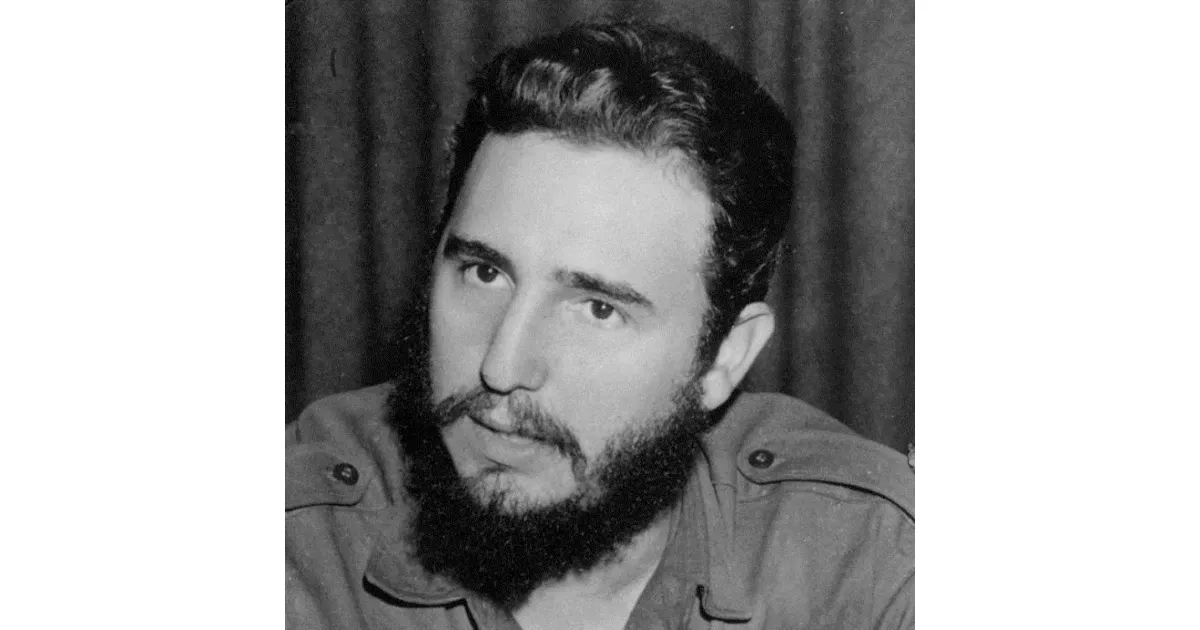Fidel Castro was a Cuban revolutionary and politician who led Cuba from 1959 to 2008. He served as prime minister until 1976 and then as president until 2008. A Marxist-Leninist and Cuban nationalist, Castro also served as the first secretary of the Communist Party of Cuba from 1965 to 2011. His rule transformed Cuba into a one-party communist state, with nationalized industries and businesses, and widespread implementation of socialist reforms.
1903: Birth of Lina Ruz González
Fidel Castro's mother, Lina Ruz González, was born in 1903.
1942: Castro transfers to El Colegio de Belén
Fidel Castro transferred to the Jesuit-run El Colegio de Belén in Havana in 1942.
1945: Castro begins studying law at the University of Havana
Fidel Castro began studying law at the University of Havana in 1945.
November 1946: Castro's public speech against government corruption
In November 1946, Fidel Castro gave a public speech criticizing the corruption of President Ramón Grau's government.
June 1947: Castro joins expedition to overthrow Trujillo
In June 1947, Fidel Castro learned of and joined a planned expedition to overthrow Rafael Trujillo's government in the Dominican Republic.
July 1947: Planned expedition to overthrow Trujillo
The planned expedition to overthrow Rafael Trujillo in the Dominican Republic was set for July 1947, but was stopped by Grau's government under US pressure.
1947: Castro joins Party of the Cuban People
Fidel Castro joined the Party of the Cuban People (Orthodox Party) in 1947.
February 1948: Student protests and clashes with police
In February 1948, student protests against the killing of a high school student led to violent clashes with police, during which Fidel Castro was injured.
April 1948: Castro's Involvement in Bogotá Riots and OAS Founding
In April 1948, Fidel Castro, leading a Cuban student group, was in Bogotá when Jorge Eliécer Gaitán Ayala was assassinated. This triggered riots and clashes, with Castro joining the Liberal cause and allegedly obtaining guns from a police station. During the same month, he also participated in protests related to the founding of the Organization of American States in Bogotá.
1948: Chibás's run for president
Eduardo Chibás, leader of the Orthodox Party, ran for president in 1948.
September 1949: Birth of Fidelito and Castro's Political Activities
In September 1949, Fidel Castro's wife, Mirta, gave birth to their son, Fidelito. Castro continued his involvement in politics, joining the 30 September Movement to oppose gang influence at the university.
September 1950: Castro Graduates as Doctor of Law
Fidel Castro graduated as a Doctor of Law in September 1950 after a period of hiding and focusing on his studies.
November 1950: Castro's Protest and Arrest in Cienfuegos
In November 1950, Castro protested the Education Ministry's ban on student associations in Cienfuegos. He was arrested and charged with violent conduct, but the charges were later dismissed.
1951: Chibás' Suicide and Castro's Aspiration as Heir
In 1951, Fidel Castro witnessed the politically motivated suicide of Eduardo Chibás, a prominent figure in the Partido Ortodoxo. Castro viewed himself as Chibás' political heir.
March 1952: Batista's Coup and Cancellation of Elections
On March 10, 1952, Fulgencio Batista seized power in a military coup, cancelling the planned elections and declaring himself president. This prevented Castro's run for office.
June 1952: Castro's Candidacy for House of Representatives
Castro aimed to run for Congress in the June 1952 elections, however, senior Ortodoxo members refused to nominate him due to his radical reputation. Instead, he was nominated for the House of Representatives.
July 1952: Formation of "The Movement" and Recruitment Drive
In July 1952, Castro founded "The Movement", a clandestine group that published the newspaper "El Acusador" and recruited anti-Batista members. Within a year, the group grew to about 1,200 members.
July 1953: Attack on Moncada Barracks
On July 26, 1953, Castro led an attack on the Moncada Barracks. The attack faced difficulties, resulting in casualties on both sides. Following the attack, Batista's government imposed martial law and a crackdown on dissent.
1953: Attack on the Moncada Barracks
Fidel Castro led a failed attack on the Moncada Barracks in 1953.
1953: Birth of Francisca Pupo
Francisca Pupo, Fidel Castro's daughter from a one-night affair, was born in 1953.
February 1954: Castro's Imprisonment and Divorce Proceedings
While imprisoned, Fidel Castro learned that his wife, Mirta, had taken a job in the Ministry of the Interior. This led to divorce proceedings and a dispute over the custody of their son, Fidelito.
1954: Batista's Rigged Elections
Fidel Castro's rise to power occurred after rigged elections held in 1954, from which politicians were later barred.
1954: Fraudulent Elections and Growing Opposition
In 1954, Batista held elections that were widely deemed fraudulent, sparking political opposition. Supporters of Castro advocated for amnesty for those involved in the Moncada incident, leading to their eventual release.
1954: Guatemalan Coup d'état
The 1954 Guatemalan coup d'état, orchestrated by the CIA, served as inspiration for the US's plan to overthrow Fidel Castro in 1960.
May 1955: Release from Prison and Return to Havana
In May 1955, Castro and other prisoners involved in the Moncada incident were released from prison. Upon returning to Havana, Castro engaged in public appearances such as radio interviews and press conferences, though under government surveillance.
1955: Exile in Mexico and Guerrilla Training
Following increased government crackdowns in 1955, Castro fled Cuba for Mexico. There, he connected with figures like Che Guevara and Alberto Bayo, who would later be instrumental in the revolution, and began training in guerrilla warfare.
December 1956: Landing in Cuba and Early Guerrilla Activities
Castro's Granma landed in Cuba in December 1956. Faced with immediate attacks, the surviving revolutionaries, including Che Guevara and Camilo Cienfuegos, retreated to the Sierra Maestra mountains and started their guerrilla campaign.
January 1957: Building Support and Gaining Momentum
In January 1957, Castro and his rebels began conducting raids, gaining local support and recruiting new members. The execution of Chicho Osorio, a local overseer, served as a turning point in establishing trust with the local population.
February 1957: Strategic Meeting and Alliance Building
Castro met with other members of the movement to discuss tactics and strategy in February 1957. During this meeting, he met Celia Sánchez, who became a key ally and friend.
March 1957: Escalation of Violence and Rise of Castro's Leadership
March 1957 saw an escalation of violence across Cuba with the failed attack on the presidential palace by the DRE. The death of Frank País solidified Castro's leadership within the MR-26-7, and he strategically concealed his Marxist-Leninist views.
July 1957: Expansion and Organization of Rebel Forces
By July 1957, the rebel forces had grown substantially. Castro divided the army into three columns to enhance their operations, with each column under the command of Castro, his brother Raúl, and Che Guevara.
December 1958: Batista's Downfall and Castro's Rise
In December 1958, as the majority of Cuban people turned against Batista's regime, the US withdrew support. Batista fled, and a new president was appointed, but Castro, furious at the unauthorized ceasefire, ordered the new president's arrest.
1958: Rebel Advance and Batista's Decline
By 1958, Castro's rebels had expanded their control, establishing key facilities in the Sierra Maestra. Simultaneously, Batista faced growing internal and international pressure due to his oppressive tactics, leading to the US halting weapon supplies. A general strike further weakened his regime.
1958: Batista's Second Rigged Elections
In 1958, rigged elections under Batista's regime further fueled the revolution led by Fidel Castro.
January 1959: Freedom Caravan in Reverse
Following Fidel Castro's death, a funeral procession retraced the route of the 1959 "Freedom Caravan" in reverse, travelling from Havana to Santiago de Cuba where his ashes were interred.
January 1959: Castro's Entry into Havana and Early Governance
On January 1st, 1959, Castro ordered the prevention of looting and vandalism following Batista's downfall. Cienfuegos and Guevara's columns arrived in Havana on January 2nd. Castro entered Santiago, gave a speech referencing the wars of independence, and proceeded toward Havana, engaging with crowds and the press. Finally, Castro arrived in Havana on January 9th.
February 1959: Castro Becomes Prime Minister
In February 1959, Fidel Castro was officially sworn in as the Prime Minister of Cuba, consolidating his power after the revolution.
March 1959: Economic Measures and Targeting Mafia Interests
In March 1959, Castro implemented several economic measures, including reducing rents, adjusting civil servant pay, and seizing mafia-owned properties.
May 1959: First Agrarian Reform
In May 1959, Castro implemented the First Agrarian Reform, redistributing land and wealth, a move that pleased the working class but alienated wealthy landowners.
1959: Castro's Residence After the Revolution
Casa Cojimar became Fidel Castro's initial home in Havana after the 1959 revolution.
1959: Nationalization of Industries
During 1959, Castro nationalized key industries including plantations, sugar production, and oil refinement, against the wishes of foreign investors.
1959: Cuban Military Buildup
During 1959, driven by fears of a potential coup, the Cuban government invested heavily in acquiring weaponry from Soviet, French, and Belgian sources. This period also saw a significant expansion of the Cuban armed forces.
1959: Castro becomes Prime Minister of Cuba
Fidel Castro became Prime Minister of Cuba in 1959 after the Cuban Revolution.
1959: Cuban Economy Described as Relatively Developed
In 1959, the Cuban economy was described as a "relatively highly developed Latin American export economy."
January 1960: Control of the Press and Counter-Revolutionary Arrests
In January 1960, growing tensions led to government control over the press, particularly regarding articles critical of Castro, along with arrests of counter-revolutionaries.
March 1960: La Coubre Explosion and US Plot
In March 1960, a French ship, La Coubre, exploded in Havana harbor. Castro blamed the US. The US authorized the CIA to overthrow Castro's government.
September 1960: Castro at the United Nations
In September 1960, Fidel Castro traveled to New York City for the UN General Assembly. He chose to stay in Harlem to show solidarity with African Americans, meeting with figures like Malcolm X. He also met Soviet Premier Nikita Khrushchev, and they publicly condemned US poverty and racism. Castro delivered a four-and-a-half-hour speech to the UN, denouncing US policies towards Latin America.
September 1960: Creation of the Committees for the Defense of the Revolution (CDR)
In September 1960, amidst fears of a US-backed coup, Castro's government established the Committees for the Defense of the Revolution (CDR). This nationwide civilian organization was tasked with identifying counter-revolutionary activities through neighborhood surveillance. The CDR also played a role in organizing public health and education initiatives.
October 1960: Escalation of US-Cuba Tensions
In October 1960, tensions between the US and Cuba escalated significantly. Following Fidel Castro's May Day speech denouncing elections, the US imposed an embargo on most exports to Cuba on October 13th. In retaliation, Cuba nationalized hundreds of US-owned businesses. The US then ended its import quota of Cuban sugar on December 16th, further straining relations.
January 1961: Deterioration of US-Cuba Relations
In January 1961, Fidel Castro, suspecting espionage, ordered a reduction of staff at the US Embassy in Havana. The US responded by severing diplomatic ties and increasing CIA support for Cuban exiles. These exiles initiated attacks on ships trading with Cuba and targeted Cuban infrastructure.
February 1961: Pro-Castro Rally in New York City
On February 18, 1961, a demonstration of approximately 400 people, largely composed of Cubans, Puerto Ricans, and students, took place in New York City in support of Fidel Castro. Protesters rallied outside the United Nations, voicing their approval of Castro's anti-colonial stance and his efforts to counter US influence in Cuba.
April 1961: Bay of Pigs Invasion and Declaration of Socialist Cuba
In April 1961, the Bay of Pigs Invasion took place, a CIA-backed attempt to overthrow Castro. Preceding the invasion, CIA-supplied planes bombed Cuban airfields. Castro, anticipating an invasion, ordered mass arrests and publicly declared Cuba a socialist state.
December 1961: Public Identification as Marxist-Leninist
From December 1961 onward, Fidel Castro publicly identified himself as a Marxist-Leninist, aiming to transform Cuba from a capitalist state into a socialist, and eventually, a communist society.
December 1961: Castro's Declaration of Marxist-Leninist Ideology
In December 1961, Fidel Castro publicly declared himself a Marxist-Leninist. He issued the Second Declaration of Havana, urging Latin American nations to embrace revolution. These actions further strained relations with the US and led to Cuba's expulsion from the Organization of American States, while simultaneously strengthening ties with the Soviet Union.
1961: Bay of Pigs Invasion
The Bay of Pigs Invasion, an attempt by the US to overthrow Castro's government, occurred in 1961.
March 1962: Purge of "Old Communists"
In March 1962, Fidel Castro purged several prominent "Old Communists" from positions of power, accusing them of sectarianism and excessive loyalty to Moscow. This move reflected growing tensions within the Cuban government and Castro's concerns about Soviet influence.
1962: Formation of the United Party of the Cuban Socialist Revolution (PURSC)
In 1962, the Integrated Revolutionary Organizations (ORI), formed from the unification of several revolutionary groups, was renamed the United Party of the Cuban Socialist Revolution (PURSC). This move solidified the single-party system in Cuba, modeled on Leninist principles.
1962: Cuban Missile Crisis
The Cuban Missile Crisis, a major event of the Cold War involving Cuba, the US, and the Soviet Union, took place in 1962.
May 1963: Visit to the USSR
In May 1963, Fidel Castro visited the USSR at Khrushchev's invitation, touring cities, addressing a rally, and receiving the Order of Lenin and an honorary doctorate.
1963: Death of Lina Ruz González
Fidel Castro's mother, Lina Ruz González, died in 1963.
January 1964: Return to Moscow
Castro returned to Moscow in January 1964 to sign a trade agreement and discuss the implications of Kennedy's assassination.
1964: Role in Colombian Peace Talks (revealed later)
It was later revealed that Fidel Castro, along with Hugo Chávez, had played a significant role behind the scenes in orchestrating peace talks between the Colombian government and the FARC guerrilla movement in 1964, aiming to bring an end to the long-standing conflict.
October 1965: Formation of the Cuban Communist Party
In October 1965, the Integrated Revolutionary Organizations became the Cuban Communist Party, and its Central Committee members were announced.
1965: Castro becomes First Secretary of the Communist Party of Cuba
Fidel Castro became the First Secretary of the Communist Party of Cuba in 1965.
1965: Support for Global Revolution
In 1965, Castro authorized Che Guevara's mission to Congo-Kinshasa to train revolutionaries, reflecting his support for global revolution.
1966: Tri-Continental Conference
In 1966, Castro hosted the Tri-Continental Conference in Havana, solidifying his role on the world stage and leading to the creation of the Latin American Solidarity Organization.
1966: Interest in Bovine Genetics
Starting in 1966, Fidel Castro developed a deep interest in bovine genetics and breeding.
October 1967: Che Guevara's Death
In October 1967, Che Guevara was killed in Bolivia, an event that Castro publicly attributed to Guevara's disregard for his safety.
1967: Favorite Book
Fidel Castro's favorite book is said to be "For Whom the Bell Tolls".
1967: Closure of UMAP Camps
Following criticism from intellectuals, the Cuban government closed the Military Units to Aid Production (UMAP) camps in 1967. These camps had been used to intern perceived social deviants, including homosexuals, reflecting the regime's social policies.
January 1968: Arrest of Aníbal Escalante
Aníbal Escalante and his supporters were arrested in January 1968 for allegedly sharing state secrets with Moscow.
August 1968: Response to Prague Spring
In August 1968, Castro denounced the Prague Spring leaders and supported the Warsaw Pact invasion of Czechoslovakia.
1968: Great Revolutionary Offensive
In 1968, Castro launched the Great Revolutionary Offensive, closing private businesses and declaring their owners as counter-revolutionaries. This led to a decline in productivity due to a lack of consumer goods and the perception of an emerging elite.
January 1969: 10th Anniversary of Castro's Administration
Castro celebrated his administration's 10th anniversary in January 1969, acknowledging economic problems and warning of sugar rations.
May 1970: Kidnapping of Cuban Fishermen
In May 1970, Cuban fishing boat crews were kidnapped by Alpha 66, but later released under US pressure and welcomed back by Castro.
1970: CDR Expansion
By 1970, the Committees for the Defense of the Revolution (CDR) had grown to encompass a significant portion of the Cuban population, with roughly one-third involved in the organization. This number would eventually increase to approximately 80%.
1970: Economic Reorganization by Soviet Economists
From 1970 to 1972, Soviet economists restructured Cuba's economy and established the Cuban-Soviet Commission of Economic, Scientific and Technical Collaboration.
April 1971: Arrest of Heberto Padilla
Castro ordered the arrest of dissident poet Heberto Padilla in April 1971, leading to international condemnation. Padilla was later released, and the National Cultural Council was established.
October 1971: Visit by Alexei Kosygin
Soviet premier Alexei Kosygin visited Cuba in October 1971 to help reorganize the Cuban economy.
November 1971: Visit to Chile
Castro visited Chile in November 1971 to support President Allende's socialist reforms but warned him of potential threats from the military.
July 1972: Cuba Joins Comecon
In July 1972, Cuba joined the Council for Mutual Economic Assistance (Comecon).
September 1973: Castro attends Non-Aligned Movement Summit
In September 1973, Fidel Castro attended the Fourth Summit of the Non-Aligned Movement (NAM) in Algiers, facing criticism from some members due to Cuba's alignment with the Warsaw Pact.
October 1973: Castro breaks ties with Israel, sends troops to Syria
In October 1973, during the Yom Kippur War, Castro severed Cuba's relations with Israel, citing its relationship with the U.S. and treatment of Palestinians. He also sent 4,000 Cuban troops to support Syria.
1973: Tour of Leftist Allies
In 1973, following a coup in Chile, Castro toured several leftist allied nations, including Guinea, Algeria, Bulgaria, Hungary, Poland, East Germany, Czechoslovakia, and the Soviet Union.
1974: Cuban economic growth and international relations
In 1974, Cuba experienced economic growth due to high sugar prices and new credits. Several Latin American countries advocated for Cuba's re-entry into the Organization of American States.
November 1975: Cuban intervention in the Angolan Civil War
In November 1975, Castro sent Cuban military advisors and later troops to Angola to support the MPLA in the Angolan Civil War, a move that sparked controversy and debate regarding Soviet influence.
1975: Restructuring of Cuban government and adoption of socialist identity
In 1975, Cuba's government underwent restructuring, aligning itself with the Soviet model. The country officially declared itself a socialist state, held the first National Congress of the Cuban Communist Party, and drafted a new constitution. Castro became President of the Council of State and Council of Ministers.
1976: Adoption of new Cuban constitution
In 1976, Cuba adopted a new constitution based on the 1936 Soviet Constitution, marking the end of 16 years of provisional government.
1976: Previous Canadian Visit
In 1976, Pierre Trudeau, the Canadian Prime Minister at that time, visited Cuba.
July 1979: Support for Sandinista movement and criticism over foreign involvement
In July 1979, Castro supported the Sandinista National Liberation Front's overthrow of the Nicaraguan government. Criticism arose regarding Cuban lives lost in foreign conflicts.
October 1979: Castro's UN speech and Non-Aligned Movement presidency
In October 1979, Castro addressed the United Nations General Assembly, highlighting global economic inequality. He also served as president of the Non-Aligned Movement from 1979 to 1982.
1979: Castro Receives Armored Mercedes
During the Non-Aligned Movement summit in Havana in 1979, Saddam Hussein gifted Fidel Castro an armored Mercedes-Benz 560 SEL, which became Castro's primary vehicle.
1979: Castro leads the Non-Aligned Movement
Fidel Castro became the leader of the Non-Aligned Movement in 1979.
1979: Economic downturn and unemployment in Cuba
In 1979, Cuba's economy struggled due to declining sugar prices and a poor harvest. Unemployment emerged as a significant issue.
1979: Support for New Jewel Movement in Grenada
In 1979, Fidel Castro supported the leftist New Jewel Movement's takeover in Grenada and provided aid to the country.
1980: Mariel boatlift and election of Ronald Reagan
In 1980, the Mariel boatlift led to a mass exodus of Cubans to the U.S. Ronald Reagan was elected U.S. president.
1980: Castro Reduces Cigar Consumption
Starting in 1980, Fidel Castro's doctor had him reduce his cigar usage due to health concerns.
1981: Castro Accuses US of Biological Warfare
In 1981, Fidel Castro publicly accused the United States of biological warfare against Cuba, claiming they orchestrated a dengue fever epidemic.
1982: End of Castro's Non-Aligned Movement presidency
Castro concluded his term as president of the Non-Aligned Movement in 1982.
1982: Ubre Blanca's Record
In 1982, a cow bred by Fidel Castro, named "Ubre Blanca", set a Guinness World Record for milk production.
July 1983: Castro Condemns Reagan Administration
In July 1983, during a speech marking the 30th anniversary of the Cuban Revolution, Fidel Castro condemned the Reagan administration as "reactionary, extremist" and "warmongering".
October 1983: Coup in Grenada and US Invasion
In October 1983, a coup in Grenada led by Bernard Coard resulted in the execution of Maurice Bishop. Castro condemned the killing but maintained support for the Grenadine government. The US invaded Grenada, leading to clashes with Cuban troops and condemnation from Castro.
1983: Castro steps down as leader of the Non-Aligned Movement
Fidel Castro stepped down as leader of the Non-Aligned Movement in 1983.
1983: Castro Stops Smoking Entirely
In 1983, Fidel Castro quit smoking entirely after a cancerous ulcer was discovered in his intestine.
October 1985: Castro Quits Smoking; Addresses Third World Debt
In October 1985, Fidel Castro quit smoking cigars on medical advice and became a vocal critic of the Third World debt problem.
1985: Castro Quits Smoking Cigars
Around 1985, Fidel Castro reportedly quit smoking cigars during an anti-smoking campaign promoted by the Communist Party. He had smoked since he was 15 years old.
1985: Ubre Blanca's Death
Following the death of "Ubre Blanca" in 1985, the Cuban newspaper Granma published an obituary for the cow, and stamps were issued in her honor.
November 1987: Increased Involvement in Angolan Civil War
By November 1987, Castro increased his focus on the Angolan Civil War, sending more Cuban troops to support the MPLA government.
January 1988: Conflict with Ochoa Over Cuito Cuanavale
In January 1988, Castro clashed with General Arnaldo Ochoa over the defense of Cuito Cuanavale in Angola. He criticized Ochoa for nearly losing the city to South African and UNITA forces despite prior warnings.
March 1988: Cuban Troops Relieve Cuito Cuanavale
In March 1988, Cuban troops played a key role in relieving the siege of Cuito Cuanavale in Angola, forcing the withdrawal of South African forces.
April 1988: Castro Awards Medals for Cuito Cuanavale Defense
In April 1988, Castro awarded medals to soldiers for their role in defending Cuito Cuanavale. The Cuban advance towards Namibia increased tensions with South Africa.
1988: Negotiated End to Angolan Conflict
In 1988, quadripartite talks led to an agreement for foreign troops to withdraw from Angola and for South Africa to grant independence to Namibia. Castro was angered by Gorbachev's role in the negotiations.
April 1989: Gorbachev's Visit and End of Soviet Subsidies
In April 1989, Gorbachev visited Cuba and informed Castro that Soviet subsidies would end due to perestroika. Castro disregarded calls for liberalization and continued suppressing internal dissidents, particularly within the military.
February 1990: Defeat of Sandinistas in Nicaragua
In February 1990, the Sandinistas, Cuba's allies in Nicaragua, were defeated in an election by the US-backed opposition.
September 1991: Withdrawal of Soviet Troops and Deterioration of Relations
In September 1991, Soviet troops withdrew from Cuba, and relations between the two countries deteriorated further.
October 1991: Fourth Congress of the Cuban Communist Party and Proposed Reforms
In October 1991, the Fourth Congress of the Cuban Communist Party announced significant changes, including Castro stepping down as head of government but remaining head of the Communist Party. Economic and democratic reforms were proposed, including legalizing free farmers' markets and direct elections for the National Assembly.
1991: Collapse of Socialist Governments in Eastern Europe and UN Condemnation
Between 1989 and 1991, socialist governments in Eastern Europe fell to capitalist reformers. The US secured a UN resolution condemning Cuba's human rights violations, which Cuba rejected as US hegemony.
1991: End of large-scale Cuban military presence in Angola
By 1991, around 370,000 Cuban troops and 50,000 civilians had served in Angola since 1979, highlighting Cuba's long-term involvement in the conflict.
1991: Pan American Games in Havana
In 1991, Havana hosted the Pan American Games, a costly but successful event for Cuba's government, showcasing public support for Castro.
1992: Economic Decline and Special Period
By 1992, Cuba's economy had declined by over 40% due to the end of Soviet trade, leading to food shortages, malnutrition, and lack of basic goods. This period was known as the "Special Period in Time of Peace".
1993: Reaction to Daughter's Defection
One of the rare instances Fidel Castro displayed anger publicly was in 1993 upon learning about his daughter Alina's defection.
August 1994: Largest Anti-Castro Demonstration
In August 1994, Havana witnessed the largest anti-Castro demonstration, with demands to emigrate to Miami. Castro addressed the situation and labeled protestors as misled by the US.
1994: Castro's Visit to Colombia and Shift in Foreign Policy
In 1994, Castro visited Colombia and refrained from praising FARC, signaling a shift in his foreign policy and attempts to improve relations with capitalist nations.
1994: Establishment of Environment Ministry
In 1994, a ministry dedicated to the environment was established in Cuba, reflecting Castro's growing interest in environmentalism.
1995: Call for Negotiated Settlement in Mexico
In 1995, Castro called for a negotiated settlement between the Zapatistas and the Mexican government, further demonstrating his shift towards a more moderate stance on the world stage.
1995: Tourism Outstrips Sugar Industry
In 1995, tourism surpassed the sugar industry as Cuba's primary source of revenue. This led to an increase in prostitution, which Castro refrained from suppressing. Economic hardship also contributed to a rise in religious interest, and Castro softened his stance on religious institutions.
1995: Death of Jose "Pepín" Naranjo
Jose "Pepín" Naranjo, Fidel Castro's close friend and official aide, died in 1995.
1997: New Environmental Laws
In 1997, new laws promoting environmental awareness and sustainable resource use were established in Cuba.
1998: Visit by Canadian Prime Minister
In 1998, Canadian Prime Minister Jean Chrétien visited Cuba, marking the first visit by a Canadian leader since 1976.
December 2000: Formation of "Group of the Battle of Ideas"
In December 2000, following a march for the return of Elián González, the "Group of the Battle of Ideas" was formed by youth organizations. This group organized demonstrations, oversaw projects, and had special authorities granted by Fidel Castro.
2001: Castro at Conference Against Racism
In 2001, Castro attended the Conference Against Racism in South Africa, where he spoke about racial stereotypes spread by US films.
2001: Hurricane Michelle and 9/11
In 2001, Cuba experienced significant damage from Hurricane Michelle and purchased food from the US. Castro also expressed solidarity with the US after the September 11 attacks.
2002: Visit by Jimmy Carter
In 2002, former US President Jimmy Carter visited Cuba, highlighting the country's lack of civil liberties and advocating for the Varela Project.
2003: Criticism of Iraq War
In 2003, Castro criticized the US-led invasion of Iraq, condemning it as imposing a "law of the jungle."
2004: Factory Closures Due to Fuel Shortages
In 2004, Castro's government shut down numerous factories due to significant fuel shortages in Cuba.
September 2005: Establishment of Henry Reeve Brigade
In September 2005, Castro established the Henry Reeve Brigade, a group of medical professionals dedicated to international medical solidarity and humanitarian missions.
2005: Castro's Wealth Estimated at $550 Million
In 2005, "Forbes" magazine estimated Fidel Castro's personal wealth at $550 million.
April 2006: Bolivia Joins ALBA
In April 2006, Bolivia, under Evo Morales, joined ALBA, further solidifying the alliance.
July 2006: Delegation of Presidential Duties
In July 2006, due to intestinal bleeding and subsequent surgery, Fidel Castro delegated his presidential duties to his brother, Raúl Castro.
2006: Cuba Achieves Sustainable Development
By 2006, Cuba became the only nation meeting the UN's definition of sustainable development.
2006: Castro's Image in Cuba
By 2006, despite Fidel Castro's dislike of personality cults, his image had become commonplace in Cuba, appearing in stores, classrooms, taxis, and on television.
2006: Castro transfers responsibilities to Raúl Castro
Fidel Castro transferred his responsibilities to his brother, Raúl Castro, in 2006.
2006: Castro Ranked 7th Wealthiest Ruler
In 2006, "Forbes" magazine estimated Fidel Castro's personal wealth at $900 million, ranking him as the 7th wealthiest ruler globally.
February 2007: Health Improvement and Political Involvement
In February 2007, Raúl Castro announced Fidel's improving health and his continued involvement in government matters. Fidel also made a public appearance on a radio show and met with various political figures.
February 2008: Retirement from Official Positions
In February 2008, Fidel Castro formally announced his retirement from the positions of President of the Council of State and Commander in Chief, citing health reasons. Raúl Castro was subsequently elected president.
January 2009: Public Reassurance and Continued Engagement
In January 2009, despite declining health, Castro reassured the Cuban public and continued to engage through written columns, social media, and meetings with foreign leaders.
July 2010: First Public Appearance Since Illness
In July 2010, Castro made his first public appearance since his illness, greeting workers and giving a televised interview.
August 2010: Address to National Assembly
In August 2010, Castro delivered his first speech to the National Assembly in four years, focusing on international affairs and warning against military action by the US.
April 2011: Resignation from Communist Party
In April 2011, Fidel Castro resigned from his position as First Secretary of the Communist Party of Cuba, effectively stepping down from his official role in the government. His brother, Raúl Castro, was chosen to succeed him.
2011: Castro steps down as First Secretary
Fidel Castro stepped down as First Secretary of the Communist Party of Cuba in 2011.
2013: Urging Restraint During North Korea Crisis
During the 2013 North Korea crisis, Fidel Castro urged both North Korea and the US to exercise restraint, warning of the risks of nuclear war.
January 2015: Comments on Cuban Thaw
In January 2015, Fidel Castro commented publicly on the improving relations between Cuba and the US, known as the "Cuban Thaw". While he viewed it as a positive step toward peace, he also expressed mistrust of the US government.
March 2016: Letter to President Obama
Although he did not personally meet with US President Barack Obama during Obama's visit to Cuba in March 2016, Fidel Castro sent him a letter stating that Cuba did not need gifts from the US.
September 2016: Visits from Foreign Leaders
In September 2016, Fidel Castro received visits from Iranian President Hassan Rouhani and Japanese Prime Minister Shinzo Abe at his home in Havana.
October 2016: Meeting with Portuguese President
In late October 2016, Fidel Castro met with Portuguese President Marcelo Rebelo de Sousa, one of the last foreign leaders to meet with him before his death.
November 2016: Death of Fidel Castro
Fidel Castro died in Havana on the night of November 25, 2016. The cause of his death was not made public.
2023: Juanita Castro Dies
Fidel Castro's sister, Juanita Castro, a public opponent of the Cuban regime, died in 2023.
Mentioned in this timeline

Barack Obama the th U S President - was the...
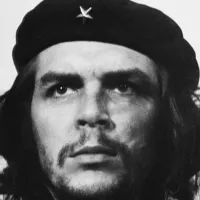
Ernesto Che Guevara was a prominent Argentine Marxist revolutionary physician...
Venezuela officially the Bolivarian Republic of Venezuela is located on...
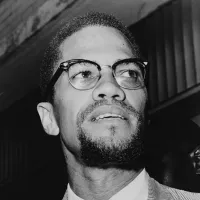
Malcolm X was a prominent African American activist and minister...
The Union of Soviet Socialist Republics USSR existed from to...
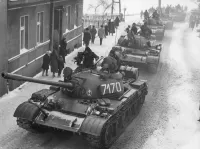
Martial law is the imposition of military rule in place...
Trending
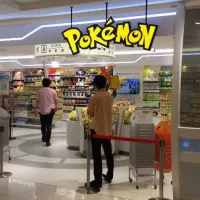
35 minutes ago Official Pokémon LEGO Sets Launch Worldwide on Pokémon Day 2026!
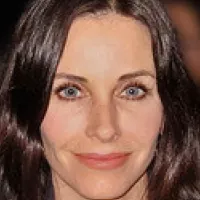
35 minutes ago Scream 7 Premiere Sees Protests After Melissa Barrera's Firing; Cast Reunites.

35 minutes ago Stock market plunges after PPI inflation data; Dow, S&P 500, Nasdaq decline.
36 minutes ago US advises embassy staff to leave Israel amid Iran strike threats, urging speed.
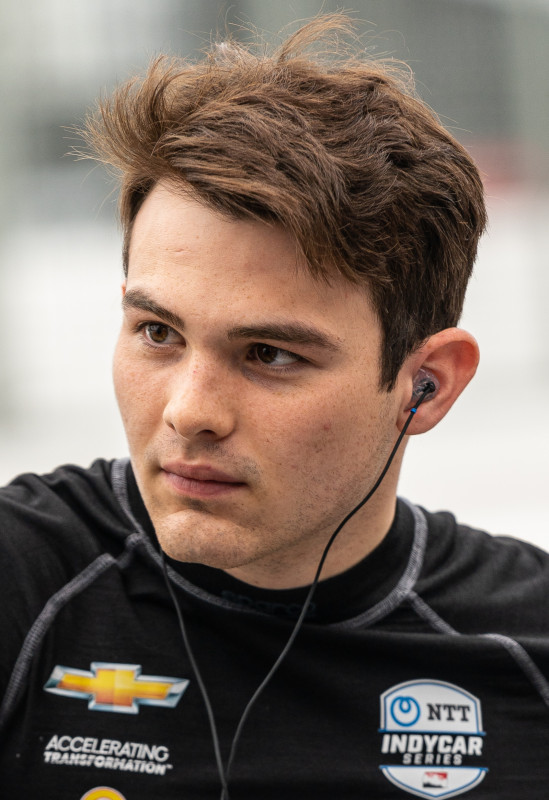
36 minutes ago IndyCar Season Opens in St. Petersburg: O'Ward and Palou in Focus.
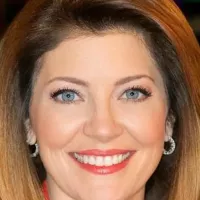
36 minutes ago Norah O'Donnell Back on CBS Mornings, Highlights Women in 'We the Women'
Popular

Jesse Jackson is an American civil rights activist politician and...

Barack Obama the th U S President - was the...

Susan Rice is an American diplomat and public official prominent...

XXXTentacion born Jahseh Dwayne Ricardo Onfroy was a controversial yet...

Michael Joseph Jackson the King of Pop was a highly...

Kashyap Pramod Patel is an American lawyer who became the...
